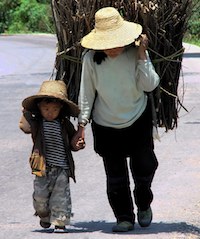 Copyright: Allpointseast.com
Copyright: Allpointseast.com
Introduction to NGOs Beyond 2014.org
The Millennium Development Goals (MDGs) that were established in 2000 by the UN expire in 2015. There is currently a multi-layered consultation process taking place to agree the Sustainable Development Goals (SDGs) that will succeed them, called the post-15 development agenda.
NGOsbeyond2014.org is a resource for all stakeholders in this process who are interested in sexual and reproductive health and rights, including maternal health, and young people and gender issues. It serves NGOs who are trying to ensure that these topics are strongly represented in the new SDGs. The website is run by the Commonwealth Medical Trust (Commat) and is sponsored by donors such as the United Nations Population Fund (UNFPA) and the International Planned Parenthood (IPPF).
The successor framework to the Millennium Development Goals is being designed by a broad constituency, with many different consultation processes, themes, groups and regions making contributions. This website provides all the latest relevant thematic news as it happens, as well as hosting an archive and reference library. There are also comment pieces, NGO discussion areas and an events and diary planner to keep track of all the different initiatives leading up to the September 2015 introduction of the new agenda.
The main consultation processes will shape the future Sustainable Development Goals, and their recommendations will be synthesised into a final report to be presented by the UN Secretary-General for adoption by the General Assembly in late 2015.
- Open Working Group (OWG) and processes arising from the outcome of the Rio+20 Conference
This was called for in the outcome document of the Rio+20 Conference, The Future We Want, and is currently negotiating in the UN. 30 seats have been allocated to this process, but with over 70 countries now taking part, many countries are sharing seats. Stock-taking of the situation as it exists has been done and negotiations are now taking place building towards its report to the UN General Assembly in September 2014. Other processes called for in The Future We Want are the High-level Political Forum (HLPF) and the Intergovernmental Committee of Experts on Sustainable Development Financing (ICESDF).
- High Level Panel of Eminent Persons
The UN Secretary-General asked a panel of important dignitaries to investigate what should be in the post-Development Agenda. They have reported back and their work has formed a basis for the work of the OWG and other deliberations.
- President of the UN General Assembly’s Special Events
The UN President of the General Assembly is hosting a series of six high level themed debates that are also feeding into the discussion
Running in tandem to this there are other processes covering the themes of sexual and reproductive health and rights, including maternal health, as well as on young people and gender issues. These processes will undoubtedly influence and feedback into the post-Development Agenda.
They include:
ICPD Beyond 2014
There is a 20 year review taking place on the progress made in implementing the Programme of Action of the International Conference on Population and Development, The final stages are now underway, with the development of the Index Report, leading up to a Special Session of the UN General Assembly to be held in September 2014. This will feed also into the post-2015 development agenda.
Beijing Women's Conference
The 20th anniversary of this landmark conference is taking place in 2015. A series of regional meetings and a report looking at the impact of the conference over the last 20 years will also feed into consultative process.
This website is run by the Commonwealth Medical Trust (Commat), Marianne Haslegrave, Director, Dr Milton Lum, Chairperson and Dr Jotham Musinguzi, Secretary/Treasurer
